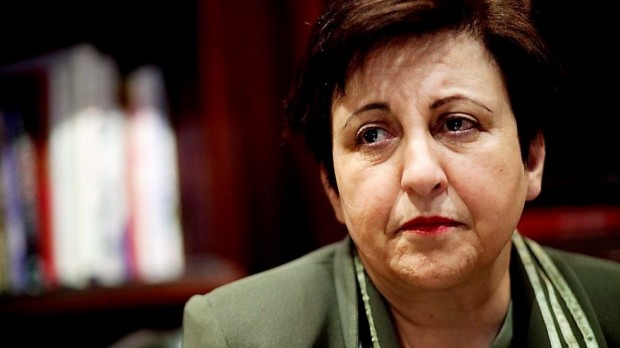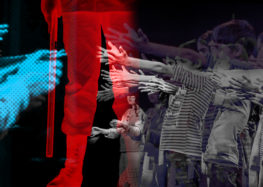Ebadi: Citizenship Charter Is Redundant Distraction from Justice

“Writing such a law as this Citizenship Rights Charter is nothing more than more promises to the people,” Nobel Peace laureate Shirin Ebadi told the International Campaign for Human Rights in Iran.
Shirin Ebadi, the 2003 Nobel Peace Laureate and human rights lawyer, told the International Campaign for Human Rights in Iran in an exclusive interview that the draft Citizenship Rights Charter published by Hassan Rouhani in November to solicit input from analysts is redundant and ineffectual, and “is in fact a tool to distract those who are waiting for justice to be carried out.”
“Reading the Citizenship Rights Charter published by the President’s Office to solicit opinions, I was reminded of the idiom, ‘re-inventing the wheel’! What is noted in the proposed Charter as citizenship rights, was already noted comprehensively and with more enforcement guarantees under the ‘People’s Rights’ chapter of the Iranian Constitution, as well as in the Citizenship Rights Law, approved by the Sixth Parliament during Mr. Khatami’s presidency,” said Shirin Ebadi.
Without commenting on the details of the president’s proposed Charter, Ebadi told the Campaign, “Basically, I don’t see the necessity for drafting this law, so I won’t give my opinion about its components one by one. If Mr. Rouhani is committed to citizenship rights, and as he promised during his elections campaign to observe the rights of the citizens, he must act according to his duties in the Constitution, one of which is monitoring the proper enforcement of the Constitution. One of these articles governs the prohibition of torture, but we observe that several prisoners have stated in writing that they were tortured in prisons and no one is addressing this issue. Another one of these articles is the right to due process. The Constitution stipulates that no one can be detained without a trial. Now he has to be accountable: based on what legal authorization have Mr. Mousavi, Mr. Karroubi, and Mrs. Rahnavard remained under house arrest for more than 1,000 days? Another one of these articles is about respecting freedom of speech. Mr. Rouhani must monitor why three newspapers—Bahar, Neshat, and Tous—were kept from publication? On what authorization has Mr. Gharavi’s detention taken place, when all he did was write an article on the history of Islam? Many of these articles of the Constitution have been forgotten and it’s best if Mr. Rouhani first tries to enforce the forgotten articles, and then, if there are still shortcomings and a more complete law is needed, he should write a new law. Otherwise, at this time, writing such a law as this Citizenship Rights Charter is nothing more than more promises to the people,” she said.
“As we speak, arresting individuals who have not been informed of their charges is illegal and those who order it must be put on trial as violators who have ordered something against the law, and have therefore committed a crime. We should not be trying to build consensus behind closed doors in order to free a group of innocent people. The Iranian Constitution addresses the People’s Rights, and the most important duty of the President in the Islamic Republic Iran is overseeing the proper enforcement of the law, and not writing words and pleasantries that would distract others,” said the 2003 Nobel Peace Laureate.
“The Citizenship Rights Charter is not an indication of a serious political will for protecting citizens’ rights, because writing an incomplete law, most of which is dedicated to pleasantries and does not have any guarantees, does nothing but waste the time of those whose rights have been violated, or who are in prison just for writing an article or having a religious ideology,” Shirin Ebadi told the International Campaign for Human Rights in Iran.
Shirin Ebadi spoke about the double standards of the Iranian officials in using certain social networks while ordinary people are deprived of the same. “We see that Facebook is blocked in Iran but the Ministers use it. We see that a thief’s hand was amputated in a small town after he stole some money and chocolate from a bakery, while individuals who stole billions from the treasury are walking around comfortably and with pride. We see that when someone like Sattar Beheshti is murdered under torture, not only don’t his family’s requests get reviewed, but also even the physician who examined him in prison and issued a statement about it is sent to prison, and a prisoner who shared a cell with him and went to the Investigative Judge in the case to share his own observations of Sattar is exiled to another prison. These are the types of things I have spoken about before. It is upon Mr. President to monitor whether the people’s rights are observed or not,” Ebadi told the Campaign.





